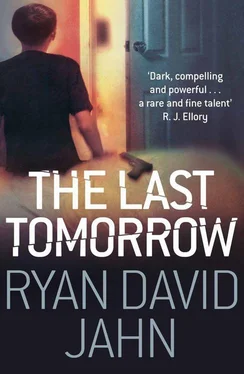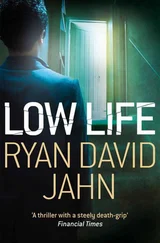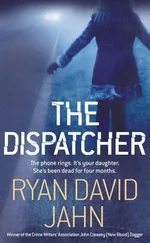He will.
And he’ll do it here, in his home, where almost every beautiful moment he ever experienced still lives.
He picks up a picture of Naomi. He looks at her beautiful heart-shaped face and her kind eyes. He loved her very much and he loves her still. He misses her and knows he won’t ever stop missing her, not completely, and it hurts, but he knows that’s okay. It’s how you hold onto a memory; you accept the pain so you can keep the memory alive. You move on not by ignoring pain, but by accepting it and carrying it with you to the new places you go.
He’ll get through this week because Naomi would want him to. She’d not want him to leap into the abyss after her. She’d not accept that. So he can’t either.
This week will be the most difficult week of his life. He knows that.
But it’s time.
Looking at his picture of Naomi, and thinking of his loss, he begins to cry. He gasps as the hurt washes over him. He tries to speak to her, to the photograph, but he’s incapable of words. Words are insufficient. Words are for everyday experiences. Only childish grunts can properly express what he’s feeling — this raw loneliness and pain. But he lets himself feel it. He lets himself cry.
It’s time.
3
Eugene sits up alone in the gray early morning. He looks around the bathroom, feeling confused and sick. His neck is sore from sleeping in the bathtub. He pushes his way out from under his blanket and gets to his feet. He lights a cigarette and inhales deeply. He looks at himself in the bathroom mirror for a long time without knowing exactly what it is he’s trying to catch a glimpse of, but he knows he isn’t seeing it and suspects it isn’t there. Whatever it is. He walks out to the living room, and through it to the balcony. He looks at the shallow world he now inhabits, drained of color and life. He thinks of the dream he just awakened from, the nightmare. He thinks of the cannibals. He thinks of that small boy they murdered, and the part they saved for him. He takes a drag from his cigarette. He knows who the boy was now, and supposes he always did.
But the boy is gone, even to the last part.
He flicks what remains of his cigarette out to the street.
This is what he’s left with.
Carl steps from the shower and dries off. He puts on slacks, a clean white shirt, and a coat. He combs his hair and looks at himself in the mirror. His cheeks are hollow, and his eyes tired, but he’s healthy and his mind is clear.
He almost never thinks of junk these days, and when he does he finds he can push the thought aside. Sometimes it’s difficult, but he can do it — and every day it’s easier than the last. He relapsed once, four months ago, but it won’t happen again. He won’t let it happen again.
He puts on a hat and steps into the October evening. It’s cool and crisp and wonderful. He inhales its scent and walks to his car. He gets inside and starts the engine. He drives toward Bunker Hill with his window down, the chill autumn air blowing against his face.
He parks in front of a small house where a blonde woman in her thirties lives alone. She’s had husbands, but her first left and her second was murdered. She’s given birth, but her son is missing and has been for months. She still reads the newspaper daily hoping to find him lurking between the lines in stories of burglary, armed robbery, and car theft. Sometimes she thinks she sees evidence that he was there.
On Saturday nights Carl drives to her house, picks her up, and they roll through the streets while she looks for him. Probably she’ll never find him, he’s just one small boy in a city of two million, but there’s a kind of bravery in her refusal to give up despite the odds, and there’s hope.
He’s learned a lot about that from her.
He steps from his car and walks up the path to her front door. He raises his fist, hesitates a moment, and knocks. After a while Candice pulls open the door. She smiles at him. He smiles back, kisses the corner of her mouth.
‘Are you ready?’
She says she is, and steps outside.












